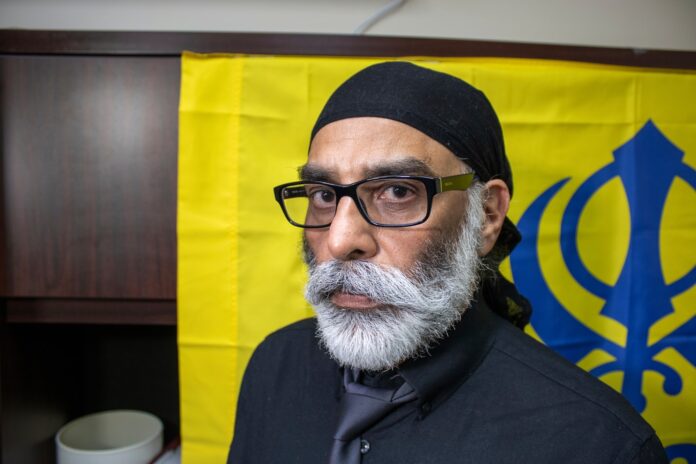Gupta’s petition, filed under the pseudonym “Mr. X,” is his first substantive public response to a U.S. indictment unsealed in federal court in Manhattan last month. He has been charged with murder for hire linked to a foiled plot to assassinate Gurpatwant Singh Pannun, a U.S. and Canadian citizen who advocates for an independent Sikh state.
Still, Musa said in the filing that there is “nothing on record to link the Petitioner to the massive alleged plot to assassinate the alleged victim.”
Musa complained that her client received adverse legal advice from a Czech government-appointed attorney “under the undue influence of … US Agencies” during the initial phase of his detention. She chalked that up to India and the United States “going back and forth in order to blame each other for their foreign policy.”
The U.S. indictment unsealed last month, as well as an earlier indictment initially charging Gupta, have noted he used the alias “Nick,” which is the name that a confidential informant working for law enforcement knew him as, according to an affidavit in support of Gupta’s extradition that was filed by DEA Special Agent Mark Franks, as an attachment to a similar affidavit filed by Assistant U.S. Attorney Ashley C. Nicolas. Musa said her client does not use such an alias “and thus makes it evident that this is a case of mistaken identity.”
Last month, following the initial June indictment, prosecutors in a superseding indictment accused Gupta and an unnamed Indian government employee of attempting to arrange the murder of Pannun, the general counsel of the New York-based advocacy group Sikhs for Justice.
Court filings show U.S. law enforcement matched old photos of Gupta taken at U.S. airports with the face of the man “who paid to have [Pannun] murdered” in video call recordings with an undercover agent and the informant to conclude that he is indeed “Nick.”
Prosecutors said that hours after the June 18 assassination of Sikh separatist Hardeep Singh Nijjar in Canada, the unnamed Indian government agent sent Gupta a “video clip that showed Nijjar’s bloody body slumped in his vehicle.” Hours later, according to the indictment, the Indian government agent sent Gupta the street address of Pannun. The same person messaged Gupta two days later, saying that the assassination of Pannun was a “priority now.”
In September, Canadian Prime Minister Justin Trudeau said there were “credible allegations” that agents of the Indian government were behind Nijjar’s killing.
In the Dec. 11 petition, Musa states that Pannun is “a prominent extremist leader and a terrorist who has in the past called upon his supporters for violence,” and that the latest indictment, by accusing Gupta of seeking to have Pannun killed, has put her client in danger.
Pannun told The Post he has not read the petition and has no comment on what it alleges. He called himself a “pro-Khalistan activist and separatist who challenge[s] India’s territorial integrity openly, but peacefully and democratically.”
India in 2020 designated Pannun as a terrorist, a label he rejects.
Gupta’s lawyer describes her client as a “middle-class businessman … who runs a consultancy dealing with excavation and import-export and is based out of Delhi.”
Gupta was traveling to the Czech Republic “for tourism and for exploring new market for his business of handicraft” when he was detained outside the airport in Prague and questioned in a black SUV for three hours, Musa wrote.
In detention in the Czech Republic, Gupta, “a devout Hindu and a vegetarian,” was “offered only non-vegetarian food including beef and pork,” and prison authorities refused to give him vegetarian food for “a period of 10-11 days,” according to the petition.
Vladimir Repka, a spokesperson for the Czech Republic’s Justice Ministry, said it “does not have any information, nor has [it] received any complaints” from Gupta or his counsel that he had been provided “an inappropriate diet.”
The court filings also contain new details about the U.S. law enforcement sting operation that ensnared Gupta.
Gupta apparently thought the confidential informant working for law enforcement was a Colombian cocaine supplier, and the informant believed Gupta to be a firearms and narcotics trafficker, according to the affidavit by Nicolas, the U.S. prosecutor. The accused’s name is redacted but the description of the individual sought for extradition matches Gupta.
Gupta has known the informant since at least 2016, since which time the two have discussed drug and firearms transactions, according to the affidavit by Franks.
While plotting the assassination, Gupta showed a disregard for harm to innocent bystanders, according to Franks. “When you get the chance and opportunity, hit the target. … No restrictions, no limitations,” Gupta allegedly told an undercover agent. “If any other person [is] with him, you can give him also the taste of the [gun].”
Gupta, Franks wrote, also told the informant “to kill everyone, to let them ‘go to the heaven.’”
The Indian Supreme Court is set to hear the case again on Jan. 4, more than six months after Gupta was detained in Prague on June 30. Gupta’s lawyer urged the court to direct Indian Prime Minister Narendra Modi’s administration to intervene in the extradition proceedings in the Czech Republic and secure his right to a fair trial.
Repka, the spokesperson for the Czech Republic’s Justice Ministry, said in an email that “[a]ny judicial authorities of the Republic of India have no jurisdiction in the matter in question,” and “[t]he case is under the jurisdiction of the competent authorities of the Czech Republic.”
A Prague appellate court will also weigh in. The final decision on whether to commit Gupta for extradition rests with the country’s justice minister.
Gupta reported from New Delhi. Amanda Coletta in Toronto and Ellen Nakashima in Washington contributed to this report.



